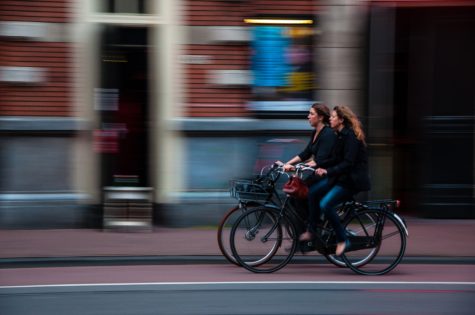
(Photo by David Marcu on Unsplash)
MONTREAL — Whether you live in the city or the suburbs may make a difference in how you get to work, but a recent study finds that no matter where you live, one mode of transportation may be better than the rest when it comes to stress.
Researchers from Concordia University found that biking to work will help lower stress levels for employees before they even arrive at the office. The authors say that coming to work calm and collected can prove quite valuable in terms of productivity.

“Recent research has shown that early morning stress and mood are strong predictors of their effect later in the day,” says lead author Stéphane Brutus in a university news release. “They can shape how subsequent events are perceived, interpreted and acted upon for the rest of the day.”
Using a web-based survey, researchers grabbed data from 123 employees at an information technology company in Old Montreal, called Autodesk. Perceived mood, stress, and ways of work travel were assessed. The survey only retained data from those who responded within 45 minutes of arriving to work. This allowed researchers to hone in on workers who were still feeling the effects of the commute.
Brutus explains that the specification of time was key and an innovative idea for the study. Responses that showed higher stress levels, but came after the 45 minute window, could be the effects of other work-related issues, playing a role in how the results are perceived. The results were quite noticeable for those who hopped on a bicycle.
“Employees who cycled to work showed significantly lower levels of stress within the first 45 minutes of work than those who traveled by car,” says Brutus.
Not only can biking to work help with your stress, it's also a cost-effective way to commute to work.
“With growing concerns about traffic congestion and pollution, governments are increasingly promoting non-motorized alternative modes of transport, such as walking and cycling,” adds Brutus. “I can only hope that further studies will follow our lead and develop more precise and deliberate research into this phenomenon.”
It's important to note that the study was unable to verify any effect on a person's mood.
This study's findings were published in the International Journal of Workplace Health Management.











3 Comments